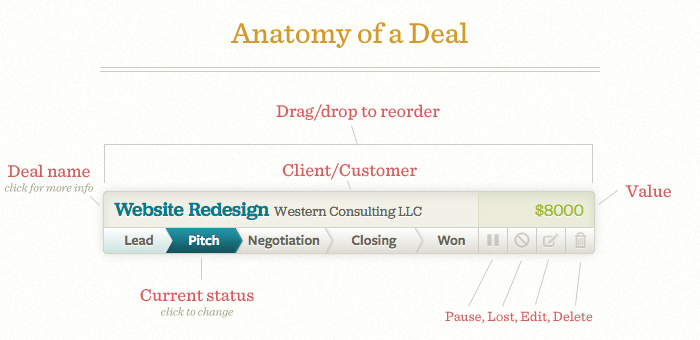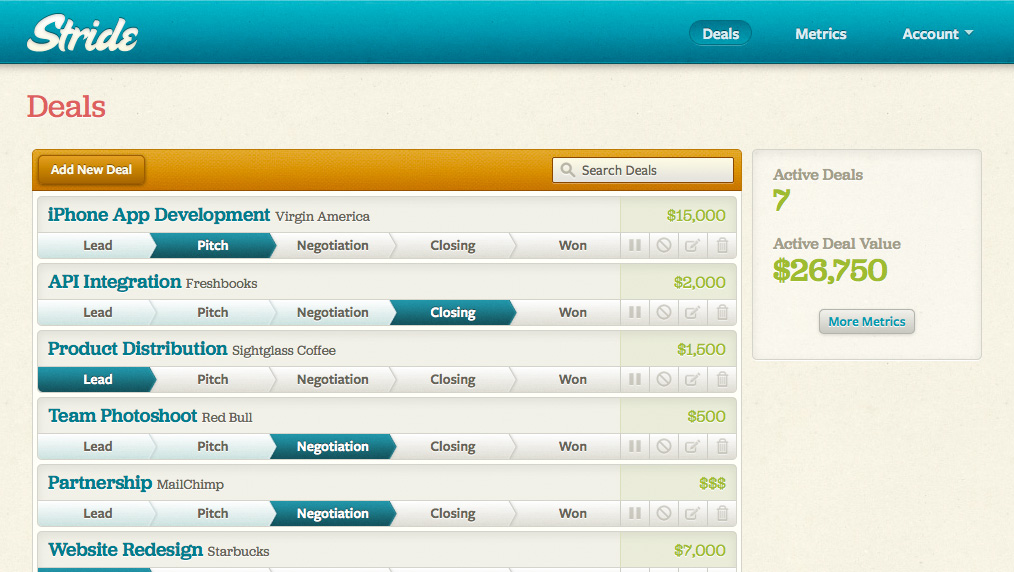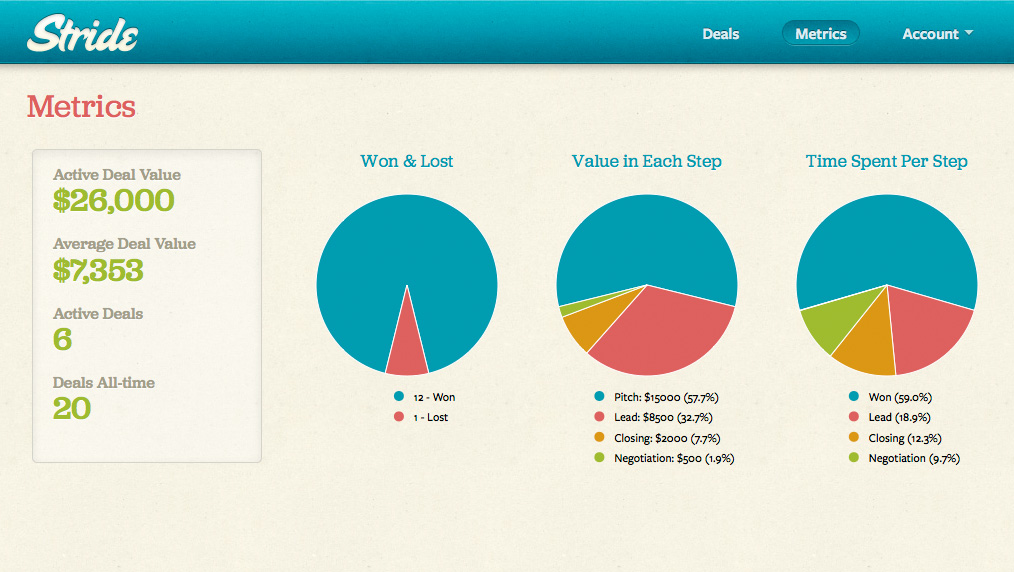Stride, a new CRM system designed to meet the needs of freelancers and small business owners, is launching into private beta today. The product, which was born out of an actual need for a more simplified CRM system, is focused on efficiency, not a complex feature set. It’s not for adding contracts, managing cases, or allocating tasks to a team of salespeople. Instead, Stride is about deal-tracking and high-level metrics only.
“For salespeople, this app is going to make them cringe,” says Stride co-founder Andrew Dumont.
The idea for the app was sparked by Nathan Carnes and built by the team of Andrew Dumont, Adrian Pike, and Amiel Martin. Carnes explains the history of Stride’s creation via a blog post detailing the frustrations he had running a small design shop and not being able to find a CRM system that fit his needs.
“I didn’t need multiple salespeople or complicated reports,” he says, “and I didn’t have time to enter contacts and manage them.”
Giving up on finding a solution, Carnes decided to build one instead. That’s something that often leads to inspired ideas, frankly. And Stride, which looks attractive, simple and accessible, may just be one of those.
Andrew Dumont tells me that he felt similar to Carnes about the current state of the CRM market. Everything he used (Highrise, Salesforce, Capsule, Base, etc.) were always “way too complex and clunky,” he says.
“We like to think of Stride as the consumerization of sales tracking,” explains Dumont.
In Stride, the whole system is focused on deal-tracking, meaning any relationship that has a dollar value associated with it is entered into Slide. The deal name and status are in blue, the value (dollar amt.) is off to the right in green, and there are buttons that let you quickly change the deal’s status (lead, pitch, negotiation, closing, won) as well as buttons that let you pause, indicate if the deal is lost, edit the deal, or delete it.
Deals can also be drag-and-dropped on the dashboard, so you can organize them as you see fit.
A simplified metrics section shows you the key figures you need to track: active deal value, average value, number of active deals and deals all-time. Pie charts further break down things like time and value in each step and number of deals won and lost, for example.
The simplicity of the product is promising – CRM for anyone, clearly – but there’s certainly room for Stride to grow to meet users’ demands for some slightly more complex features in the future. Although after small businesses, some owners may want to have multiple people to sign in and track deals under their own names, for example, or they may want a bit more detail to the reporting options. Given that product’s pricing starts at free (for 25 deals) and go up to $7/month for unlimited deals, adding a few carefully considered enhancements for a slight price bump seems reasonable, without worrying about the app moving into Salesforce territory.
Dumont tells me that, indeed, the plan is to add features in the near future, but to keep the focus on simplicity. Specifically, Stride will soon roll out a feature that will lets users add, edit and remove certain steps of the sales flow process to better fit their flow. The company is also adding email reminders and integrations with Quickbooks, Freshbooks, Rapportive and more, which will help reduce the complexity of using the system. And yes, they’re going mobile too, and plan to launch on iOS first.
TechCrunch readers interested in trying out the beta will need an invite code to get in. You can use the code “techcrunched” when you sign up here.



